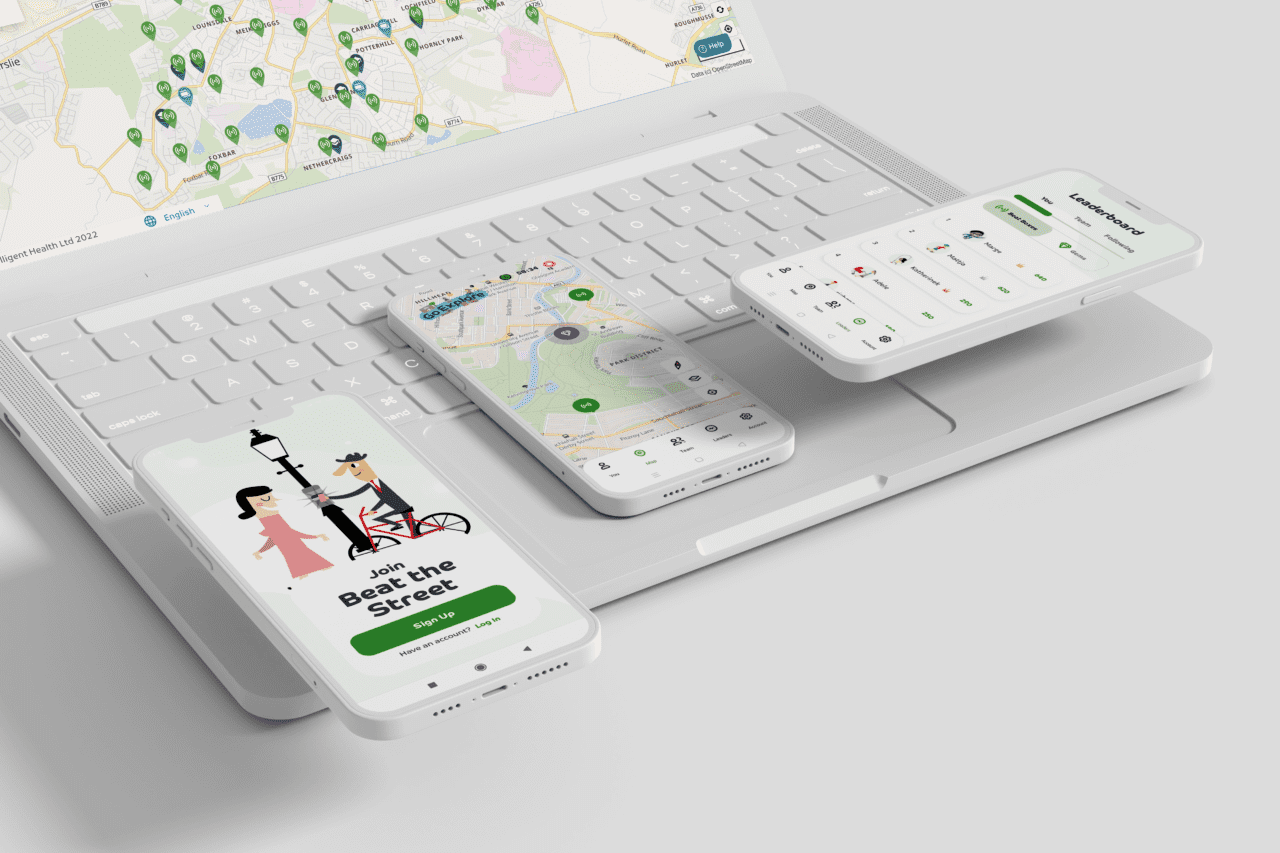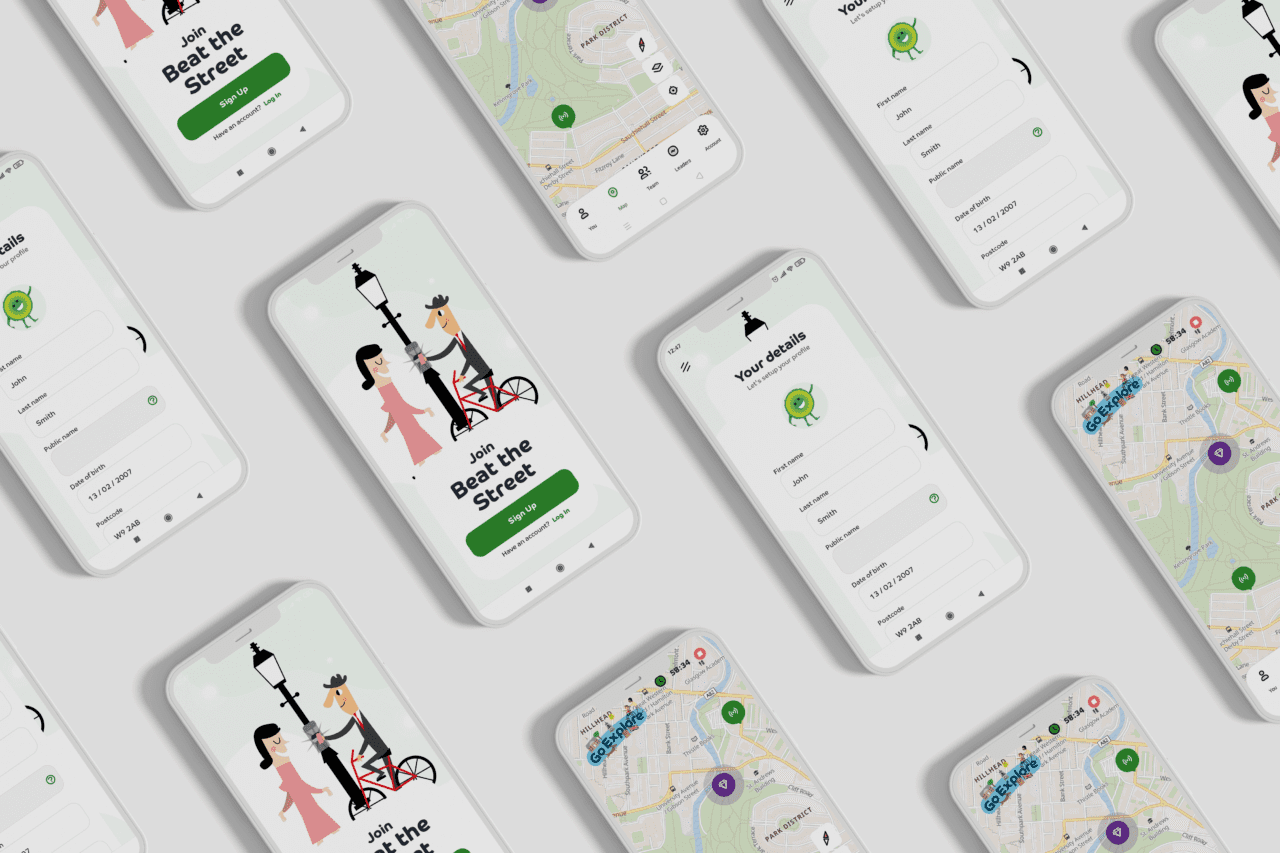




(…) working with them has been a pleasure. The working relationship and level of trust we’ve built up are outstanding. Moreover, the team’s ethical approach to their business, honesty, and transparency are second to none. TeaCode has been super responsive to what we want to do and has a vested interest in our goals; they’ve very quickly become part of our team.
Richard Ganpatsingh
CTO, IntelligentHealth
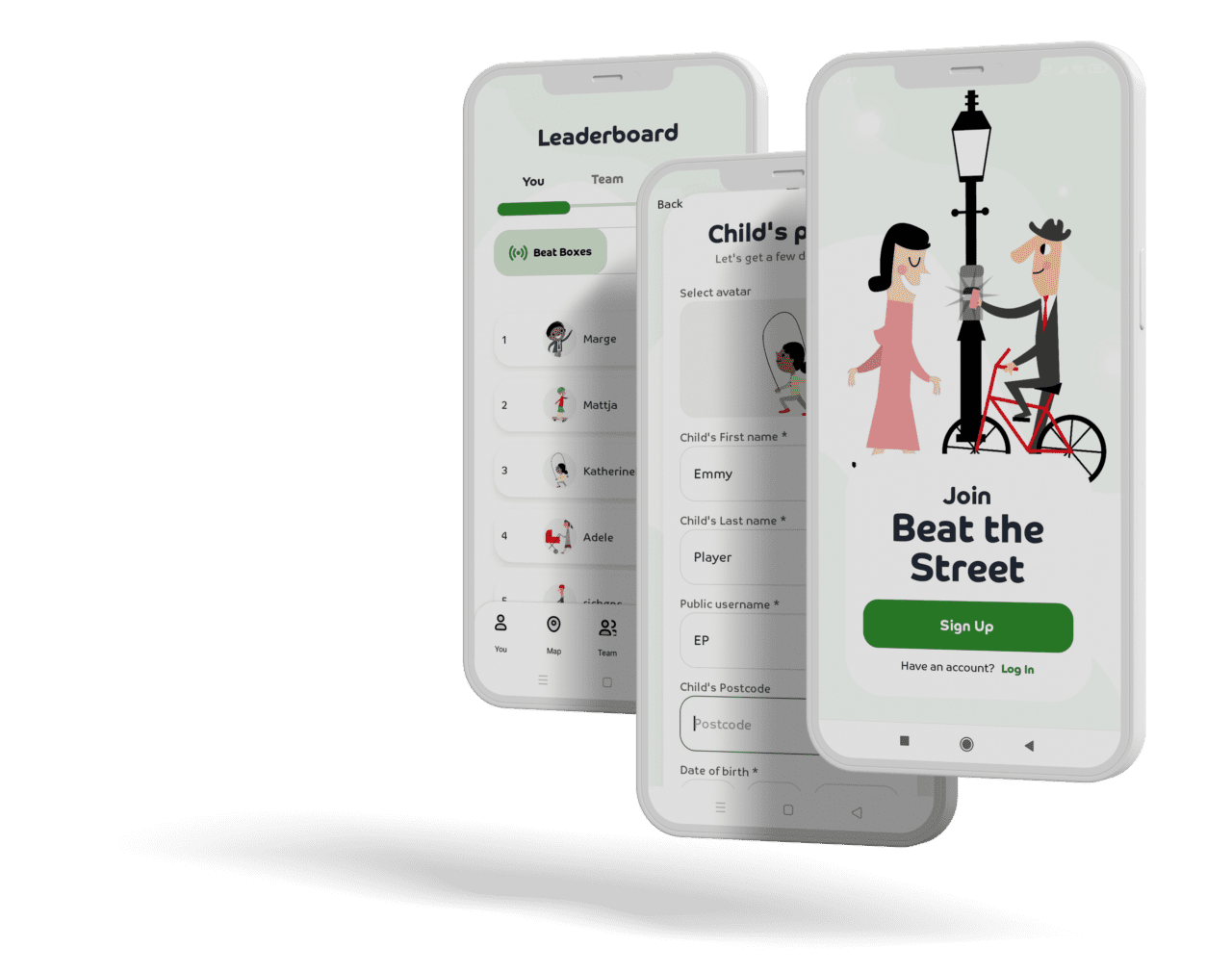
Our client, Intelligent Health Ltd., is a well-established public benefit organisation which organises street games in the United Kingdom. Their main aim is to activate society and, therefore, take care of their physical condition. For this reason, they conduct surveys before and after each game to measure its impact on participants and verify results.
The client’s goal was to make street games digital and, therefore, more accessible, interactive and pleasant. It was considered an innovation as participants could only use magnetic cards before. The second goal was to make the game more reliable and independent from custom hardware put on lampposts (that can be broken or discharged) required for magnetic cards to collect points.

Although those are mostly families (parents) who participate in street games to make their children more active (schools promote the system), BTS is open to everyone. Building a mobile app was aimed at making participation more straightforward, as participants no longer needed plastic cards to participate in it. They can start collecting points using their phone immediately after registration, and the mobile app should assign them points automatically after they reach defined localisations.
However, BTS does not require the mobile app to compete in their street games. Intelligent Health Ltd. is not into forcing children to walk all along with their mobiles. Quite the opposite – they are into family and friend bonding. Therefore, anyone who wants to do that can still use magnetic cards (children love that!). The considerable difference is that now they can collect points not only by logging into touching points hanging on lampposts but also by nearby mobile phones with the app installed. Mobile devices with the BTS app work as a portable access point for people with magnetics cards, activated when reaching defined localisations.
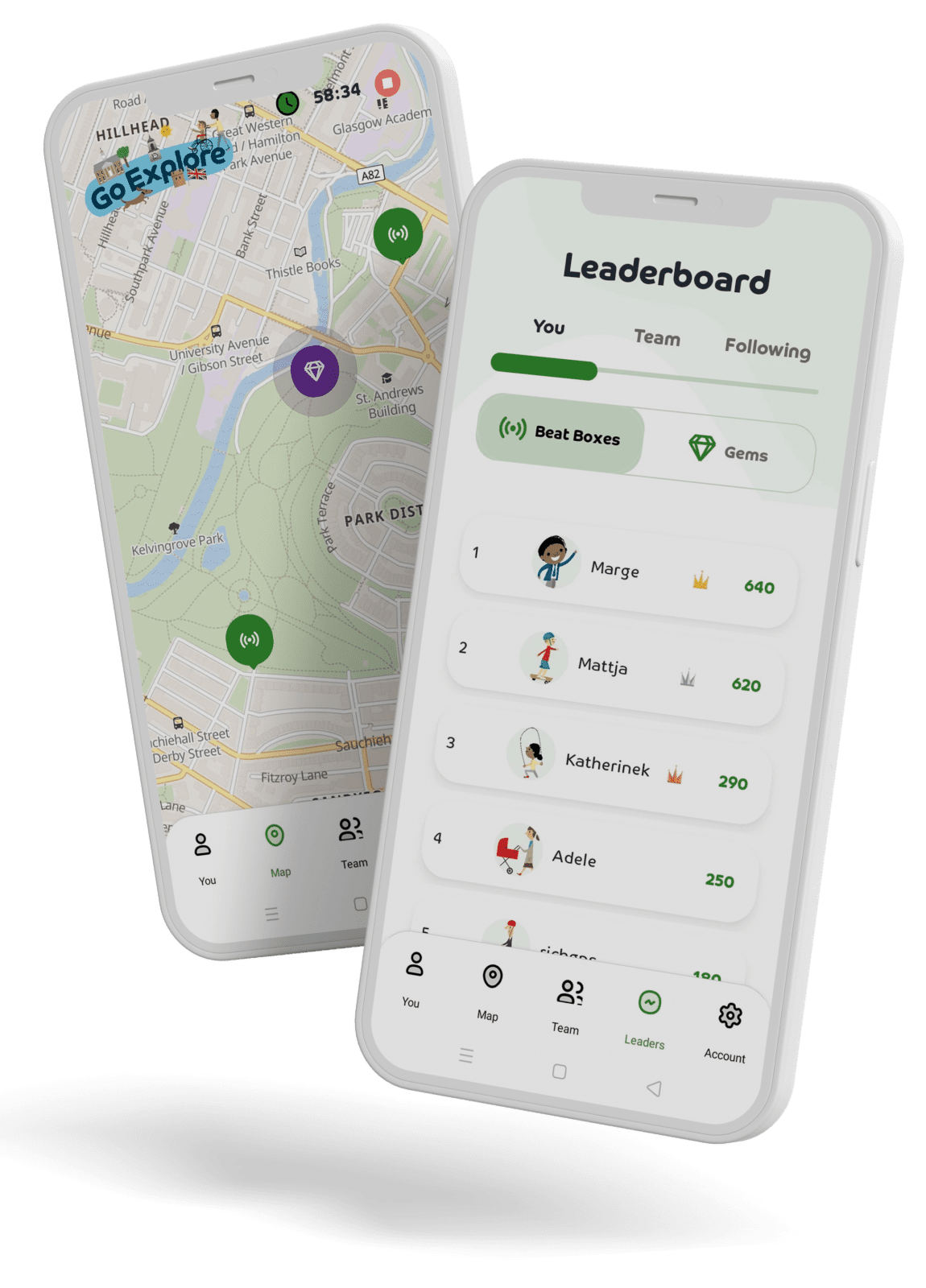

Intelligent Health Ltd. entrusted us with developing the abovementioned mobile app from scratch. The app was to allow logged-in users to collect points using their mobile only when reaching defined destinations. It was also meant to be a portable access point for every participant with traditional magnetic cards.
Using the app, users should be able to find checking points on a map, collect points when reaching them, track how many points they’ve gathered, and join groups to compete with each other. However, the system shouldn’t reward them if they drive by car or bus as BTS promote a healthy lifestyle and physical activity.
Although there was a BTS landing page before, it only allowed users to check the number of points they collected. We had to rebuild it to bring a mobile app’s possible functionality to the web. We had to ensure that people who don’t want to use the mobile app will have access to the same features (except a portable checking point).
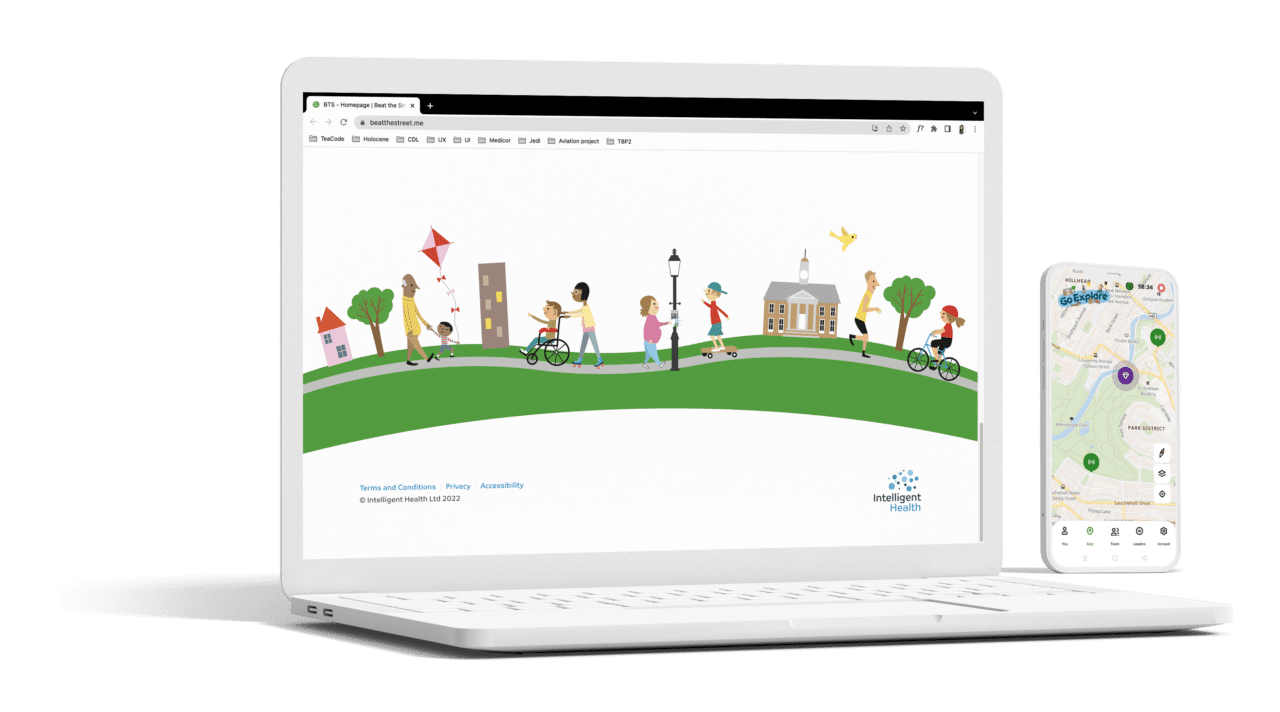

The client came to us with a well-defined idea of what they wanted to achieve, and we were to translate that into a fully working mobile application.
The project was demanding in terms of localisation tracking. As points were to be assigned right after people reached particular destinations, we needed to build an ultra-precise tracking solution (with the precision of 20-50 metres is considered a challenge). Therefore, we started the project as a proof of concept. We needed to make sure it’s possible to be that precise (we needed to use all possible localisation features to make that happen) and not consume the battery energy in no time (people should be able to walk with the app running for hours). Therefore, we needed to optimise the solution to its extent to make it ready to work on every device possible (even the older ones, as we couldn’t exclude anyone from the game).
As we implemented multiple localisation services for privacy and security reasons, we ensured that the data collected were limited to the strictly necessary only and required solely by the game itself.
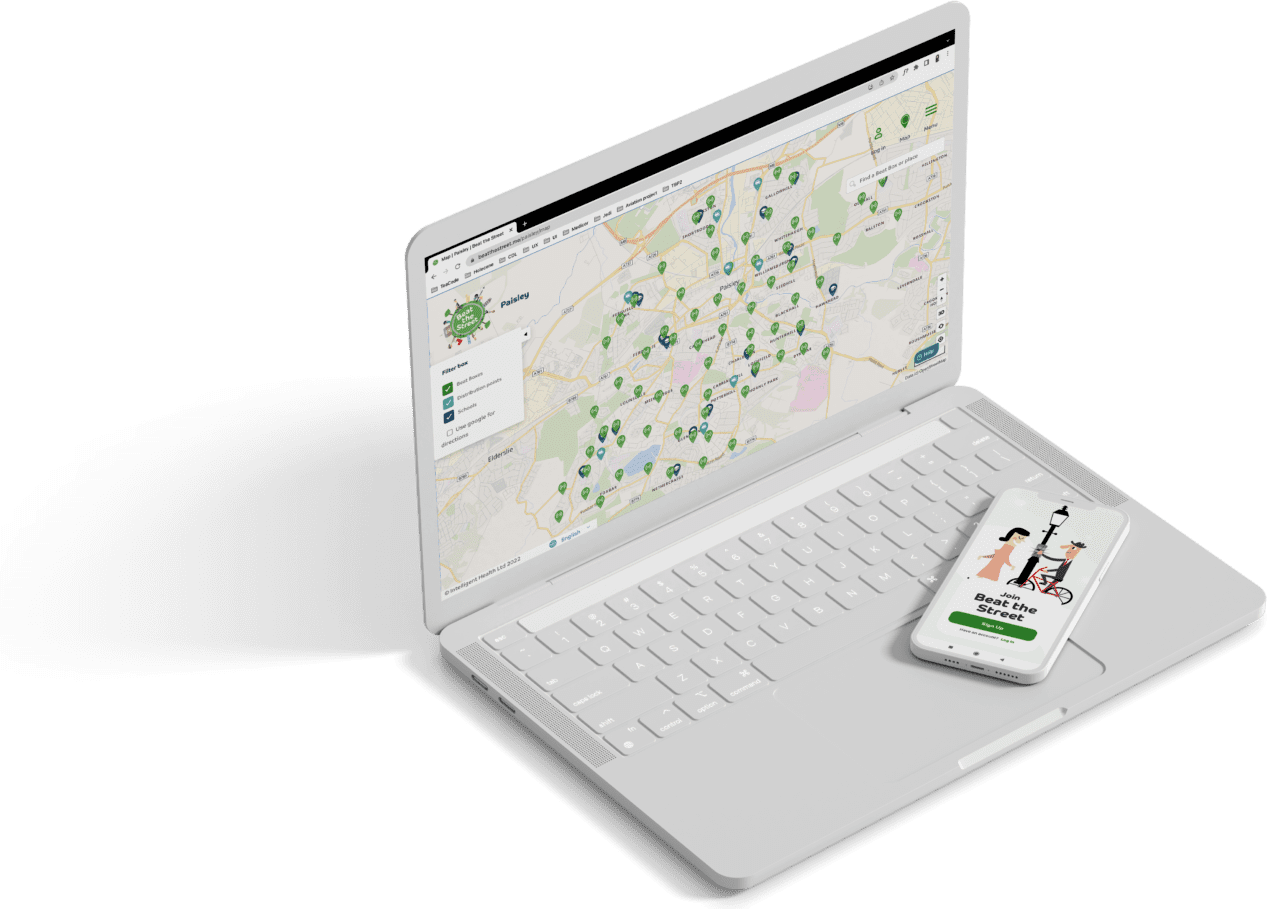

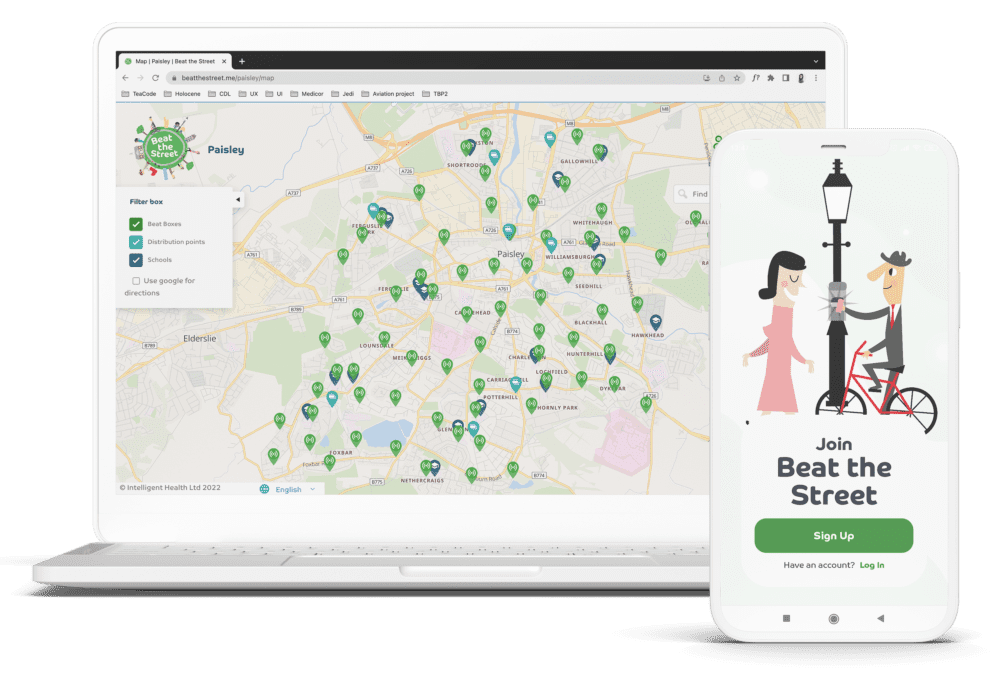
When we verified the approach and resolved all potential issues, we began to build the entire mobile app based on designs we’d received from the client.
The app was built as an MVP. We aimed to gain instant and continuous user feedback to provide users with the exact app they need. Another reason for this approach was that dozens of thousands of users participate in each street game, and we couldn’t disappoint them by providing a buggy app. People are highly emotional about those games and the points they’ve collected, which could negatively impact the client’s company brand.
Therefore, we conducted closed beta testing for over a year with a limited number of users aware of the app’s limitations and that some issues might occur. During that time, we were improving the app and adding new features.
The fully-featured app was released publicly in March 2023. Since then, dozens of street games have taken place using the brand-new BTS mobile app.

Currently, users can manage their accounts and group and check their score (and ranking) both on mobile and web devices. The mobile application allows users to browse a map to search for checking points. They can explore the city on their own, with no limitations.
When they reach the checking point, have the application installed and are logged in, the app assigns them points automatically. However, if they are accompanied by people who don’t have mobile apps but magnetic cards, they can collect points from devices set on lampposts or by scanning them through the companion’s BTS mobile app (using NFC).
The system is thoroughly thought to provide mobile app and card users the same experience in terms of collecting regular points. However, as mobile devices offer extended possibilities, the BTS mobile app users can participate in an additional competition by collecting virtual gems (ambers, rubins and others). Those gems are hidden and can be revealed when passing nearby. Each of them has a different amount of points assigned. Those points are collected separately to not disrupt the competition among those not using the mobile app.
Each time some points are assigned to a particular user, the group they are part of is also rewarded. As there are children among gamers, their parents are the ones who manage their accounts and add cards if they don’t want them to use the mobile app.
We also ensured that no points would be assigned twice and not gained by violating the rules. Although parents can access all children’s accounts in their mobile apps and switch between them, only one account can earn points for the journey per device. Therefore, all other users must install the app or simply check in to the parent’s device (or lamppost) using magnetic cards. Another feature of this kind is means of transportation verification – the app monitors the time that passed between reaching two checking points and verifies whether those points were collected according to the rules or by bypassing them (e.g. riding a car. Walking, riding a bike or skateboarding are allowed).
Currently, we’re working on extending the app’s functionality based on user feedback.



